
Nos secteurs d'activité
Depuis 20 ans, LD Export est spécialisée en développement d'affaires pour les entreprises européennes et britanniques. Nous aidons nos clients à se développer dans les six pays du Golfe — Qatar, Arabie Saoudite, Émirats Arabes Unis, Bahreïn, Oman, et Koweït—quel que soit leur secteur.
À l'aide de notre base de 4500 distributeurs locaux fiables, rencontrés et validés par nos soins, nous positionnons nos clients pour un développement commercial de qualité. Enfin, grâce à nos centaines de missions réussies et notre implantation locale, nous sommes fièrement le relais de nombreuses institutions européennes et britanniques sur notre zone.
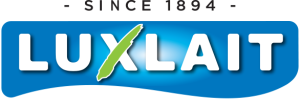


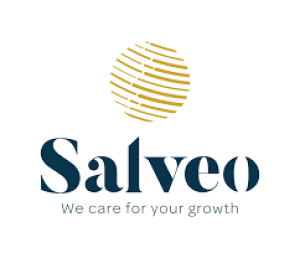










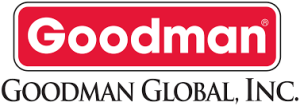
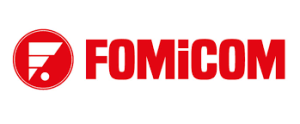
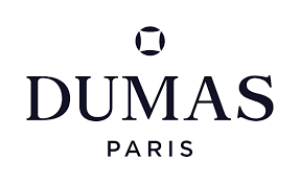






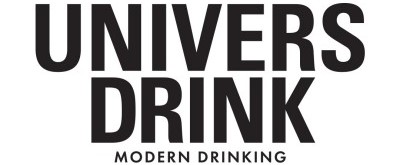





























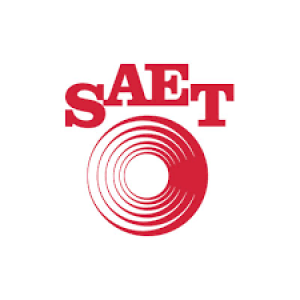

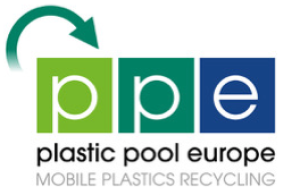


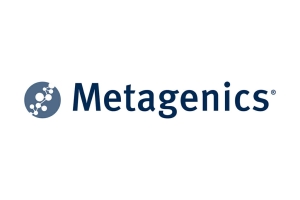

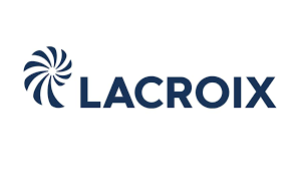



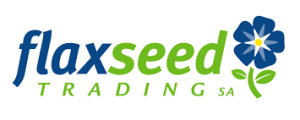

































Notre équipe






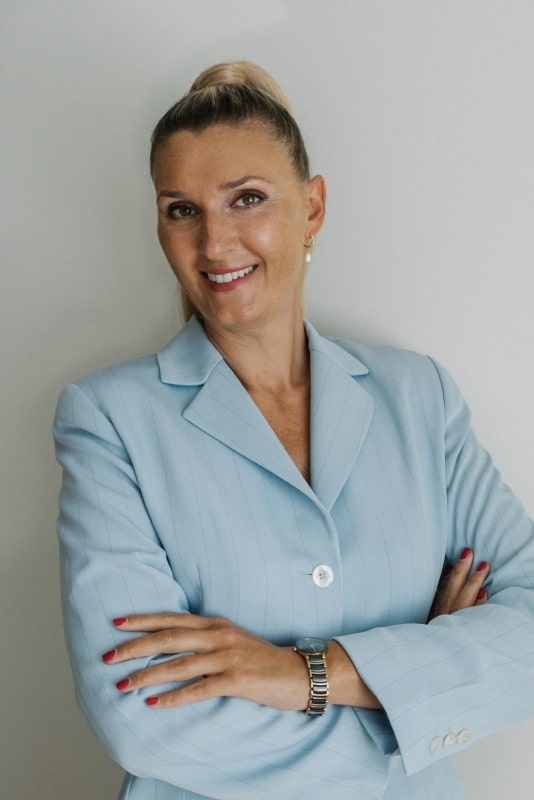
Jelena Llamas
Area Manager - France


Adam Czarny
Marketing & Design Specialist

Puja Ramuka
Market Studies Specialist

Nila Febriyanti
Market Studies Specialist

Robin Riviere
Business Consultant

Gabriel de Magneval
Business Consultant

Romain Girault
Business Consultant

Zofya Pidhorna
Business Developer

Ethan Trinh
Business Developer


Dasha Zhivanyuk
Sales Manager



































































































Success Stories

Objectif S’implanter durablement au Qatar après plusieurs années sans résultats Action Nouvelle approche avec identification d’un distributeur adapté, accompagnement sur le terrain Résultat Contrat de représentation signé et premiers projets en cours de concrétisation Témoignage Après avoir décidé de concentrer nos efforts sur le marché qatari... LD Export a joué un rôle clé pour structurer notre démarche et débloquer la situation.
LaborexRail - Nico Verougstraete

Objectif Relancer l’approche marché après plusieurs tentatives infructueuses à Dubaï Action Sélection et mise en relation avec des interlocuteurs qualifiés, affinement du positionnement Résultat Premiers résultats concrets et nouvelles perspectives commerciales ouvertes Témoignage Après plusieurs échecs et du temps perdu à Dubaï... LD Export nous a apporté clarté, bons contacts et retours exploitables.
AREM - Nicolas Soulier

Objectif Identifier un partenaire sérieux aux Émirats pour distribuer leurs pièces Action Ciblage, prospection et accompagnement à Dubaï avec mise en relation directe Résultat Contrat de distribution signé en 6 mois avec un acteur solide Témoignage Nous avons trouvé un distributeur sérieux et actif aux Émirats grâce à LDE.
Peters AutoSport - Alain

Objectif Optimiser la stratégie d’implantation au Moyen-Orient Action Analyse du potentiel, sélection d’agents et recommandation de stratégie locale Résultat Approche structurée et sélection d’un premier partenaire actif Témoignage LD Export a été d’une aide précieuse pour optimiser notre approche Moyen-Orient.
Denis Fils - Béatrice Boudan

Objectif Trouver un agent local structuré pour démarrer des projets dans le Golfe Action Recherche ciblée, entretiens de validation, accompagnement sur place Résultat Partenariat structuré mis en place avec suivi terrain régulier Témoignage Nous avons reçu un excellent accompagnement pour structurer notre approche et identifier les bons agents.
Tein Technology - Paul Van Der Auwera

Objectif Développer les ventes dans le secteur hospitalier au Qatar et en Arabie Saoudite Action Mise en relation avec des acheteurs publics et appui à la démarche commerciale Résultat Référencement obtenu dans plusieurs structures et opportunités en cours Témoignage LD Export nous a permis d’atteindre les bons interlocuteurs dans le secteur hospitalier public.
Indigo Care - Jan A. Beckers

Objectif Accompagner le développement e-commerce dans le Golfe Action Conseils stratégiques et recommandations locales sur le business model Résultat Pénétration du marché réussie et adaptation du modèle de vente Témoignage J’ai travaillé avec LD Export pour mon développement dans le Golfe – des conseils précis et efficaces.
Outlet Avenue - Jean Pol Boone
Nos services
Offre exploratoire
Ayez un premier aperçu de votre potentiel dans le Golfe. Cette mission souple et rapide vous offre une vision qualifiée du marché, basée sur notre réseau et notre expérience terrain.
Points clés:
Validation rapide de l’intérêt via notre réseau local
Estimation du volume de marché et du positionnement potentiel
Identification des principales opportunités et obstacles
Benchmark initial des concurrents et solutions alternatives
Retours informels de partenaires de confiance
Délai: 2 à 4 semaines
Étude de marché pratique
Avant d’entrer sur un marché du Golfe, vous avez besoin de clarté. Nous vous fournissons une vision rapide et concrète du secteur ciblé, avec des données fiables, des éléments réglementaires, et les attentes du marché local.
Points clés:
Taille du marché, tendances et potentiel de croissance
Identification des principaux concurrents locaux
Benchmark des prix et canaux de distribution
Certifications et exigences d’étiquetage
Attentes des clients et comportement des consommateurs
Délai: 4 à 6 semaines
Nous pilotons votre réussite
Vous voulez des prospects sérieux ? Nous structurons votre entrée dans un pays du Golfe, de la sélection du marché jusqu’aux rendez-vous avec des partenaires qualifiés. Vous gardez le contrôle, nous faisons le terrain.
Points clés:
Sélection du pays du Golfe le plus adapté à votre activité
Entretien avec votre équipe pour définir les priorités
Recherche et création d’une longlistde partenaires potentiels
Validation et classement de chaque contact (Non pertinent / À suivre / Très bon profil)
Organisation de 6 à 8 rendez-vous qualifiés
Délai: 12 à 16 semaines
All Inclusive
Nous devenons votre Export Manager officiel dans le Golfe. Vous bénéficiez de notre réseau, de notre expertise et de notre présence terrain pour structurer un développement commercial durable dans les six pays du Golfe.
Points clés:
Analyse complète du marché et stratégie d’entrée
Identification et qualification de distributeurs par pays
Négociation contractuelle et accompagnement à l’intégration
Gestion continue des partenaires et visites terrain
Suivi mensuel, monitoring des ventes et ajustements stratégiques
Délai: 12 mois + (contrat annuel renouvelable)
Témoignages

Nous souhaitons exprimer notre sincère appréciation à LD Export pour son soutien exceptionnel et ses contributions inestimables à la récente mission de Luxlait aux Emirats Arabes Unis. En tant que PDG de Luxlait, j'ai été très impressionné par l'expertise, la connaissance du marché et l'engagement inébranlable dont LD Export a fait preuve tout au long de cette mission. Son équipe, dirigée par François-Xavier Depireux, a fait preuve d'un haut niveau de professionnalisme et de dévouement. Le rôle de LD Export a été déterminant dans le succès de notre approche des principaux distributeurs des Émirats arabes unis. Sa compréhension du marché du Golfe, son suivi méticuleux et sa disponibilité sans faille ont facilité tous les aspects de notre voyage. Nous avons franchi des étapes importantes et recueilli de nombreuses pistes et demandes précieuses, tout cela grâce au soutien de LD Export.
Gilles Gerard CEO, Luxlait

Chez All Might Consulting, nous avons eu le plaisir de collaborer avec LD Export et pouvons affirmer avec conviction qu’ils sont un véritable catalyseur pour les entreprises souhaitant se développer à l’international. Experts des pays du Golfe, ils offrent une connaissance approfondie des marchés, un accompagnement stratégique et un soutien opérationnel permettant aux entreprises de s’orienter et de réussir dans cette région dynamique. Si vous recherchez un partenaire de confiance pour activer votre croissance dans le GCC et au-delà, LD Export est l’équipe qu’il vous faut à vos côtés !
Loïc Bertoli, Administrateur délégué/Managing Director

Bodegraven Metaal already had a branch in Dubai, but after a few years sales stagnated. We noticed that we had reached our top in the UAE and were looking for a reliable partner to boost sales in the Middle East. We found this partner in the team of Francois-Xavier. An expert and professional approach led to an increase in sales and we currently export to almost all countries in the Middle East. Having a partner who knows the local habits, has the patience and knows the right channels is absolutely necessary to do (even more) business in these regions. Keep up the good work!
Igor Liberloo, Sales Director

L’équipe de LD Export a pris le temps de comprendre notre entreprise et a élaboré une stratégie sur mesure pour pénétrer notre marché cible. Après plusieurs appels introductifs, ils nous ont recommandé une visite sur place. LD Export a organisé un programme complet de réunions couvrant un large éventail d’acteurs clés, nous permettant ainsi d’acquérir une compréhension approfondie du marché local.
Kirsten Hurley, Managing Director for Europe, West Asia and Africa

Le Moyen-Orient était un marché inconnu pour nous, et nous avions besoin d’un partenaire solide pour faciliter notre entrée. Avec le recul, nous avons eu énormément de chance de trouver LD Export et l’équipe de François-Xavier. De l’étude de marché initiale à la préparation détaillée et aux réunions à Dubaï, tout a été géré de manière professionnelle. Grâce à LD Export, notre marque est désormais bien implantée dans la région, et nous avons sécurisé un partenaire commercial en seulement quelques mois.
Christian Schepers, Export Manager, Hermann Sewerin GmbH

Notre entrée sur le marché du Moyen-Orient a été rendue possible grâce au soutien précieux de François-Xavier Depireux et de l’équipe LD Export. Ils ont joué un rôle clé dans notre expansion internationale en nous aidant à naviguer dans les complexités du marché. Après plusieurs mois de préparation, nous avons acquis une solide compréhension du marché et identifié les distributeurs clés. LD Export a mené des visites sur place, présélectionné trois distributeurs de premier plan et nous a finalement aidés à nommer un partenaire officiel. Grâce à LD Export, nous avons maintenant un distributeur actif dans 25 pays. La mission a été un véritable succès !
Arnaud Jacquemin, Owner, UniversDrink

Notre entreprise a identifié le Moyen-Orient comme un marché prometteur pour son expansion. Pour valider notre intuition, nous avons rencontré François-Xavier Depireux (CEO et fondateur de LD Export) et avons élaboré une feuille de route pour pénétrer cette région. LD Export nous a aidés à identifier des clients potentiels, organiser des réunions et structurer notre approche du marché. Notre voyage de quatre jours a inclus 10 réunions préqualifiées, des visites avec des partenaires logistiques et des discussions avec des représentants commerciaux locaux. François-Xavier a fait preuve d’un grand professionnalisme, d’une organisation impeccable et d’une grande flexibilité. Un immense merci à LD Export pour ce voyage d’affaires réussi !
Arnaud Degen, Fettweis Packaging

Nous sommes reconnaissants envers LD Export pour leur contribution à notre expansion dans le Golfe. En tant que Directeur Commercial de MySalesLab, j’ai été impressionné par leur expertise du marché et leur suivi rigoureux. Leur professionnalisme a rendu le processus fluide et efficace. Je recommande vivement LD Export à toute entreprise souhaitant se développer dans le Golfe.
Pawel, Commercial Director, MySalesLab

J’ai rencontré François-Xavier Depireux lors d’un séminaire VOKA en Belgique, où il était l’intervenant principal. Notre entreprise était déjà présente au Koweït et aux Émirats Arabes Unis, donc l’expansion en Arabie Saoudite était une étape logique. LD Export nous a fourni une étude de marché approfondie et a organisé des réunions précieuses avec des partenaires potentiels. L’expertise de Mat a été essentielle dans la mise en place de ces réunions, et nous recommandons vivement LD Export aux entreprises cherchant à entrer sur le marché saoudien.
Jeroen De Smedt, Managing Director

Notre entreprise a identifié les Émirats Arabes Unis comme un marché prometteur pour notre expansion. Pour valider cela, nous avons fait appel à LD Export pour une analyse approfondie du marché et l’identification de partenaires potentiels. Leur approche structurée et leur excellente organisation nous ont impressionnés. Maintenant, c’est à nous de maintenir l’élan et d’implanter notre activité dans la région.
Bruno Orietti, Responsable Export

Le Moyen-Orient a toujours été un marché cible pour notre entreprise, mais nous avions du mal à l’aborder efficacement. L’équipe de LD Export a tout changé grâce à son engagement et son professionnalisme. De l’étude de marché à la signature de partenariats, ils ont été un partenaire précieux. En seulement un an, nous avons signé plusieurs accords, et nos premières commandes sont en cours de traitement.
François RUZAFA, Responsable commercial

Un client important nous a présenté LD Export. Ils avaient joué un rôle clé dans des projets de développement commercial en Arabie Saoudite. Après un appel convaincant avec François-Xavier, nous avons décidé de collaborer avec eux. La première phase de notre expansion aux Émirats a été un succès, et nous sommes impatients d’entrer sur d’autres marchés du Golfe avec le soutien de LD Export.
Francis Dedrie, Manager

J’ai découvert l’excellente réputation de LD Export en cherchant à explorer le marché du Golfe. Après plusieurs mois de collaboration, je peux confirmer qu’ils méritent leur excellente réputation. Ils gèrent tout efficacement, de l’étude de marché à la sélection des partenaires et au suivi. L’expérience approfondie de François-Xavier était évidente à chaque réunion, et nous nous sommes sentis bien accompagnés tout au long du processus.
Frédéric Lemmens, CEO

Travailler avec LD Export a été un plaisir. En très peu de temps, ils ont organisé une série de réunions de grande qualité avec des partenaires potentiels à Dubaï. Le processus a été géré de manière professionnelle, et nous avons été agréablement surpris par les résultats obtenus.
Frédéric Lescure, CEO - Chief Executive Officer

LD Export nous a offert un service très spécialisé pour nous aider à explorer et approcher le secteur du commerce de détail en Arabie Saoudite. Leur analyse de marché a été précieuse et très pertinente.
Arthur Parent, Area export manager (Africa / Middle East / South America)

Il y a 20 ans, notre société LD Export a vu le jour avec l'idée claire d'aider les entreprises belges à se développer dans le Golfe. Aujourd'hui, je suis fier de dire que nous avons collaboré avec des centaines d'entreprises dans toute l’Europe et au Royaume-Uni.
Grâce à LD EXPORT, nos clients ont pu développer leur activité sur ce que je crois être le marché le plus prometteur au monde pour les PME européennes. Chaque jour, nous sommes enthousiastes à l'idée de poursuivre cette aventure, en aidant des milliers d'autres entreprises qui ont des ambitions dans la région du Golfe et aujourd’hui, nous sommes prêts à vous mettre en relation avec l’un de nos 4 500 contacts dans les pays du Golfe.
Tout cela est rendu possible par notre équipe talentueuse et dévouée. Toujours à vos côtés, LD EXPORT s’engage dans votre succès et votre croissance.
Yallah!

